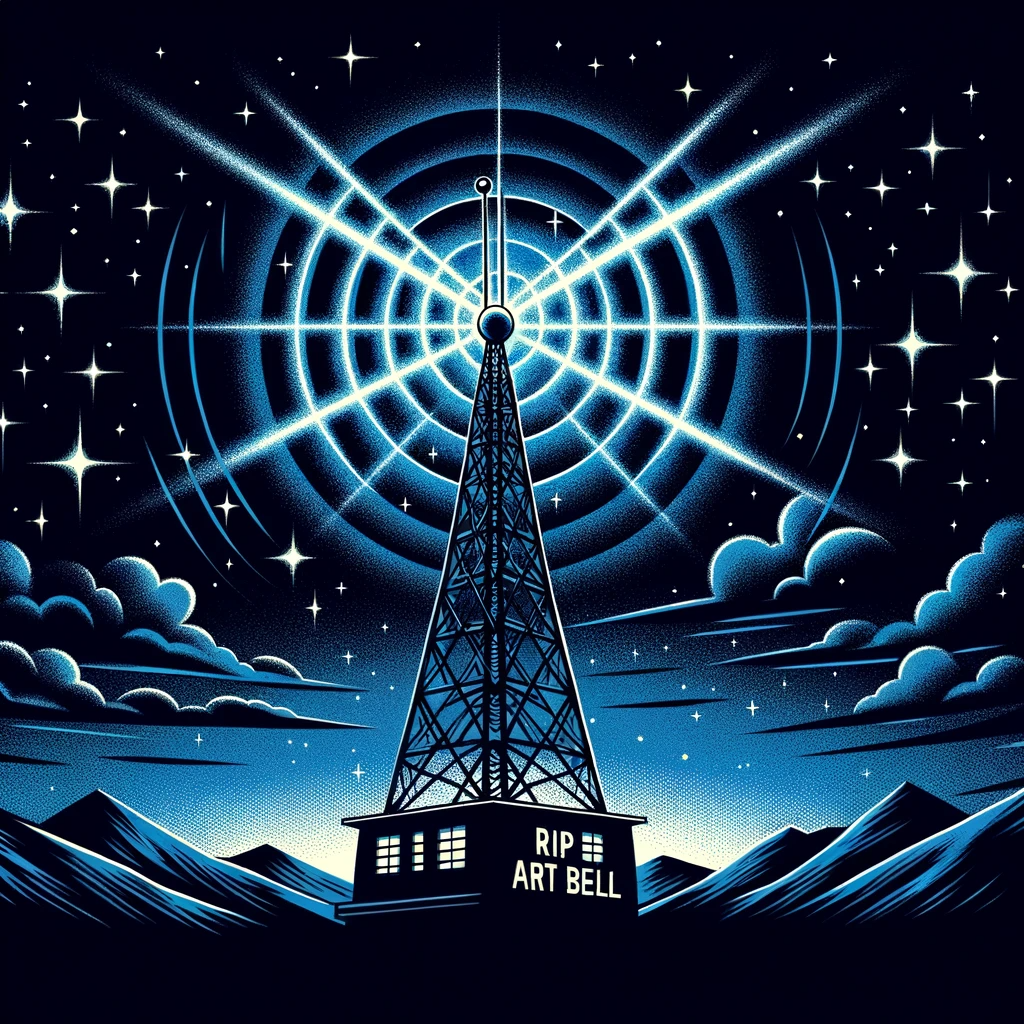I have a couple.
-
Celiac disease. Most people, if they’ve heard of it, believe it’s a physical intolerance to gluten/wheat similar to lactose intolerance. Or, many people think it’s semi-imaginary gluten intolerance and some insist it doesn’t even exist. In fact it is a serious autoimmune disease that affects about every system in your body, and can produce dozens of symptoms ranging from complete debilitation to mild discomfort. Hair loss, dry skin, chronic diarrhea mixed with constipation, anxiety, memory loss, brain fog, insomnia, extreme fatigue, slow growth in children, anemia, osteoporosis, and even more… plus can lead to other autoimmune diseases. Nobody knows what causes Celiac as 30x as many people have the genes as ever develop it, and it can start at any time in life.
-
type 1 diabetes. Most people have heard diabetes as the 24x as common Type 2 Diabetes, and believe diabetes in general affects overweight people and has something to do with eating “too much sugar”. That’s not quite right for type 2 but it also has nothing at all to do with type 1. T1 used to be called “juvenile diabetes” because it affected people from ages 0-25. However, they changed the name because they found adults could get it, which is what happened to me (called LADA). Type 1 and Type 2 are practically opposite conditions that both affect your glucose regulation and have overlapping effects. Type 2 is where your body puts out so much insulin, it stops responding to insulin, called insulin resistance. It can be reversed to some extent by diet and exercise. Type 1 is an autoimmune condition where your body destroy the cells that produce insulin, leading to no insulin in the body at all, which can quickly be fatal. Unlike type 2, there’s no lifestyle or diet correlation, only genetics.
One I would add to this (though it has never affected me) is diabetes insipidus.
Biggest misconception about this (and doctors don’t help here at all) is it must be another name for type one or type two diabetes because we always hear “there are two types”. Nope, it’s totally sovereign.
Another misconception is it’s one of those rare things. Literally anyone can develop it as a result of a side effect of super common medications such as lithium and a few vaccines that are fortunately no longer in circulation.
And a third is it’s not serious. It’s incredibly serious. Imagine all those misconceptions you hear about diabetes and sugar and apply it to water instead of sugar. Scares me to think about it.
Good note, that’s another one that’s totally different. Diabetes was originally named for a large flow of urine, which is the connection I guess, but insipidus doesn’t have the connection to high blood glucose. Type 1 and type 2 are Diabetes Mellitus, named for the urine smelling sweet (like honey, ooh!) from the sugar expelled in it. The kind I have is also called Type 1.5, but it’s more like type 1. There’s also an even more rare kind, similar to type 1, called MODY, which is purely genetic.
Sounds like the moral of the story here is they really need a new naming system for all of this.
Yes, the autoimmune pancreatic deficiency ones should be split off from type 2. Insipidus should just be called something totally different. That’s a recurring conversation on T1 discussion groups. People ask things like “were you really fat as a kid? Did you like, just eat so much sugar you got diabetes?” and no, I was 5’11" and 130 lbs when I was diagnosed.
Have
My brother was recently diagnosed with type 1 at almost 50.
We are having a very quick crash course in it.
Yeah, I was about 40 and I had no idea what was happening. I had just been getting better after being finally diagnosed with Celiac. I was really sick and even saw one of the major hospitals in the country for 2 weeks, they didn’t figure out what was going on… then I finally had to go to the ER when I was, they said, 1-2 days away from dying or going into a coma. Definitely caused some problems in between then.
I haven’t seen much T1 action on Lemmy yet, but the communities on reddit are quite good.
-
laughcries in neurodivergent
What can you do though: People are idiots and I am one of them.
High five from an ADHDer!
It’s fucking hard to explain that yes, it’s possible for me to look like I’m operating like a normal person… but choosing to live and work in a way compatible with my brain isn’t laziness. The hardest person to convince was myself. Thankfully, now that I’m enlightened, I care a lot less what other people think.
Nobody is an idiot who tries their best.
Challenge accepted.
I have a few chronic illnesses. Individually I think they’re at least easy to explain, if not something people already understand, but trying to communicate the combination is hard.
None of them are usually that bad by themselves. Together the issues compound and make it extremely hard to attribute symptoms to something specific. Like, are the migraines a rare symptom from a condition, a result of them interacting, one of the medications I’m taking or a new issue? I don’t know.
And when you’re vague (as in, don’t pull out your entire medical record and attribute each symptom to a specific condition) or the issues sound too severe for what people already understand, you get some pretty… negative reactions. “My uncle had X and he was fine, you’re milking it for sympathy!” but did he have Y and Z as well? Did he have the same variant of X? Was he actually fine, or did you never really talk to him about it? It’s rarely apples to apples comparing disabilities but that’s how people a primed to react.
I’ve learned to deflect and fall back behind medically privacy in professional settings, but it can be stressful.
What are the chronic illnesses, if I may ask?
Can you buy a car?
What? Is this related?
I think the commenter was making a gas joke.
Can you throw up?
Can you pass gas?
Oh shit, there are others!
And then there were three.
I have a few, but the most commonly misunderstood of these… I don’t even know if it has a name. I’m just socially slow and people assume I’m an introvert because of it.
Made worse because schools put people in special education classes for social issues, they can’t comprehend for some reason that people just don’t all socialize the same way.
It’s not all that uncommon either if you believe in the statistic that the average person lies a hundred times a day. WHY do they lie a hundred times a day? Because of exchanges like this.
“Hello.”
“Hi.”
“Hey, how are you today?”
“Good, just finished washing the dishes.” (lie to keep the conversation alive)
Which means our society, by training people to value sociability more than friendliness, are breeding its own compulsive liars. And on a side note, that brings us to another ill people don’t understand, because people think compulsive lying is a “bad seed” kind of thing when our environment (and sometimes the rebound after being 100% honest for a long time) can make us that way.
What? Are you saying your illness is lying? I’m not really following…
No, I’m saying it can lead to lying in other people, because people begin to realize it’s easier to come up with little conversational lies than it is to think of what things in one’s own life are relevant enough to mention in order to keep a conversation alive. I’m saying me being socially slow is the illness. One person I know likened it to dyslexia but for charisma instead of literacy.
Ah gotcha, that makes sense. Thanks!
It is completely 100% ridiculous to try to ‘diagnose’ you from this short of a description, but it could be that you’re autistic to some degree.
Us autistic folks like to take moral issues a lot more personal, like having to lie. We’re often at odds with societal standards. We may feel like we’re socially slow, even though in my experience, it’s usually just that we socialize differently. And we definitely overanalyze things.
You wouldn’t be the first to suggest it’s autism (and I thank you for your hoping to help), though I’ve asked doctors about that before and they say they themselves see little going for the theory I have autism (as opposed to, say, dyspraxia, dyslexia, and this which all are equally possible/probable/improbable as causes except the last one). I can relate to the societal standards part though, it was one of the thought processes behind a recent post of mine that seemed to have gotten a mixed response.
I do also have anhedonia, but I never 100% could confirm how much of a connection it has because of how differently it manifested based on the time of my childhood.
I have multiple symptoms from birth which cause me pain, loss of some body tissues and could render me unable to walk. Doctors always ignored me. I convinced myself I communicated badly. I made extensive list of everything. Ignored again. Got a full DNA test which shows inborn issues with same symptoms. Still ignored. Still in pain. Completely hopeless. Tired. Recovering from another surgery with complications. If they addressed my issues, I don’t think I’d ever need surgeries. But I had around 10. I developed a complete disdain for medical personnel. They feel purposefully malicious in the negligence. I don’t understand it.
I myself have never had a good experience with doctors, mostly psych ones. I’ve had some big issues combined with several minuscule ones like non-24 and stunted emotional quality, and they played around with all of them like it was interpretational. At one point was deathly allergic to at least one of my medications yet they weren’t so quick to change mine, leaving me to endure, as well as making counselors/psychiatrists legally mandated for many people where I live even for many who have no issues at all. Lemmy is slow to learn that whether or not medical professionals take their liberties is not a matter of debate.
Thank you. Long Covid is exactly what prompted me to create this post. I’ve been having symptoms for 15 weeks (insomnia, brain fog, exhaustion). My primary care doctor was useless.
I’ve since discovered a lot of literature on my own that has validated my experience: that it’s typical for general doctors to have no clue, they’re still working on finding good biomarkers for the condition (it’s not easy to test for), and I’ve learned a bunch about PEM (post-exertional malaise) and self-pacing / energy-management techniques to prevent the push-crash cycle that people with Long Covid experience.
Did you take an antiviral like Paxlovid when you had COVID? Apparently they’re supposed to reduce likelihood/symptoms of long COVID, but there’s not a large amount of published research about it yet.
If I asked people what subaoritc stinosis is, there is absolutely no way the average Joe or Jill would understand what that is or what it causes. So, that.
I am a caregiver for a person with rare b-cell lymphoma (chronic illness, treated with a biologic drug rather than chemo) and I’ve noticed 90% of people don’t understand what chronic cancer means. People can’t really comprehend someone being better than on their deathbed but much worse than their “normal” health and energy level, and that state will never end. I think popular culture portrays cancer as either “about to die” or “in remission”, rather than showing portrayals of the weird in-between state many patients find themselves dealing with.
Society is not able to understand chronic illness. Full stop.
The bias is you interact with people able to do normal society actions, because all the people who can’t are not interacting that way.
You grow up as a kid thinking,”this is how things will be for me and everyone I know. This is normal.” Then you experience chronic illness and realize you NEVER get “better” (read back to 100% fine). I am guilty of this. Then I didn’t get better.
We hide so much in how people suffer. We hide how illness impairs the lives of many in the US especially. We work to get basic medical care. So many are forced to show up broken to work, and hide it to retain care. Once we can no longer show up to the job as it demands, we get fired or are forced to resign, or in the most ideal of circumstances, we are forced to take long term medical disability.
I work every day not to avoid that end, but to forestall it for a little while longer. I buy time in the currency of my stress and well being. Once I am not “in society” any longer, my disability will be hidden and whoever takes my place gets seen.
The world doesn’t understand chronic illness because it’s hidden unless it happens in your household or to you.
I am very sorry. Sending my best to you!
No, I haven’t.
A collection of autoimmune diseases
deleted by creator
Crohns? That’s what I have and “invisible disability” is an apt description.
My Dad lived with diagnosed Crohns for 25 years. We covered for him as a family however we could. But you just don’t get how debilitating it can be unless you’re intimate with it.
As a kid I thought my dad was lame and a bore for not doing a lot of things I wanted. As an adult and having cared for him for most of the last 10 years, I realized he was a warrior that achieved more than any other in his body could’ve.
I came down with Type 1 Ligma as a junior in highschool. Most people don’t even know what the disease is
Woah dude totes lucky to b alive?!
Fine, I’ll bite
sigh What’s ligma?
You will bite? Not eat?
I will bite, and I will bite down hard

Damn, Ligma. I’ve heard that’s rough. 😂
This is the only ligma-related meme I ever laughed at.
Thanks Pipey.
@rip_art_bell Yes I have Fibromyalgia and not many people know about how that works.
I was gonna bring this one up, not because i have it, but my mother does. I barely under stood it after it was explained several times. Hardly no one knew what it was when my mother was diagnosed, some of other docters havent had even heard of it according to her.
@Breezy Yes sadly most doctors haven’t heard of it and if they have some don’t think it’s actually a thing. I’m very lucky in having my mum that also has the same condition so it’s nice to know i’m not the only one going through things.
Also no one knows if it is genetic there has been very little research about it let alone in that area. Glad you came to comment hope your mother has learnt to deal with the pains, fog and tiredness.
Even most doctors don’t understand it! Sad hooray!
I hear about this condition a lot. May I ask how it manifests?
@shinigamiookamiryuu It’s really unknown how Fibro forms, to be put simply it’s your body sending the wrong signals to your brain telling your body it is in pain (This is only one thing in fibro but a big part of it). Sadly there isn’t a easy way to test for Fibro, you have to be tested for many other things before you get to the possible diagnosis but as @xmunk mentioned most doctors don’t understand it, some don’t even think it is an actual thing.
Hypothetically, could dogs be used to diagnose it? I know dogs’ smelling ability can detect depression, cancer, and DID. Why not fibro?
One theory I’ve heard where fibro comes from, is that the body is always in fight-or-flight mode (for varying reasons), it never properly switches over to rest-and-digest mode for an extended period.
So, it could be that someone with fibro just smells like someone taking an exam, but like, even in theoretically relaxed situations.
It sounds like a good theory, but according to that theory, where would the pain come from? I don’t think I’ve ever been struggling on certain answers on an exam and suddenly it hits me (excuse the pun, I couldn’t resist).
I’ve basically only watched one video on this (of someone who’s supposedly medically trained, has fibro themselves and published a book about fibro), so you know, don’t think I’m an expert.
But well, according to this video, one common cause for pain in people with fibro is muscle tension. She said something like, what’s normally considered dangerous levels of muscle tension, where you’d actively medicate people in a hospital, that’s normal levels for fibros.
Obviously, you won’t get muscle tension in an exam, except maybe in your writing hand, because you’re not really using your muscles and exams tend to be short enough anyways.
Another suspected cause is that during fight-or-flight, your body releases testosterone, which inhibits, I believe, oxytocin production, which means your body slows down long-term regenerative processes. So, quickly closing up a bleeding wound is on schedule, but making sure your joints are regenerated before the next fight-or-flight situation, that’s lower priority while you’re supposedly still in a fight-or-flight situation.
@shinigamiookamiryuu I wouldn’t say you couldn’t but is a strange set of symptoms with things such as our pains as it can be effected by stress, mood, weather or even temperature. A dog could be trained to detect it as well as even help with service dogs but that’s a lot of money and research. As well as Fibro is very misunderstood as we aren’t even sure how it comes about, Trauma maybe, Born with it, possibly.
Based on your particular description here, a part of me wonders if it can be placed on the same spectrum as multiple sclerosis (something I am all too familiar with). If so, it might definitely help it be understood, as what people know about MS seems like it would serve as a good point reference for fibro.
@shinigamiookamiryuu It does have similar things to MS yes
















